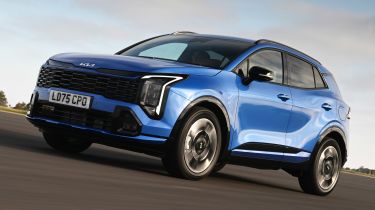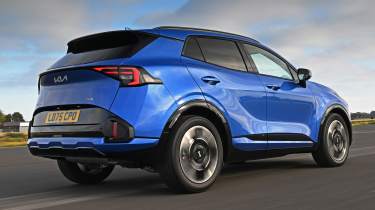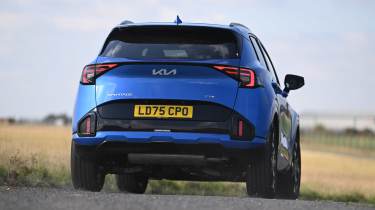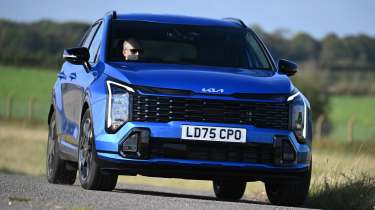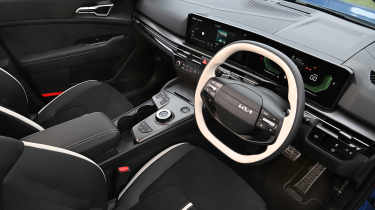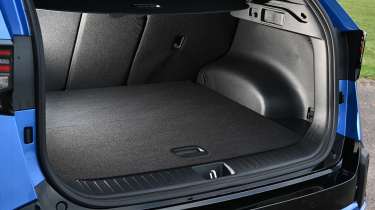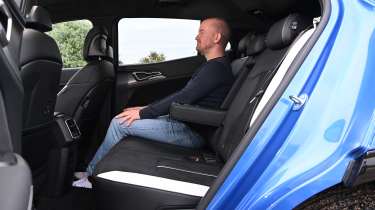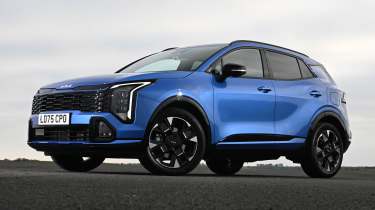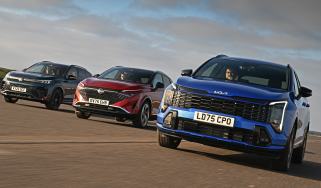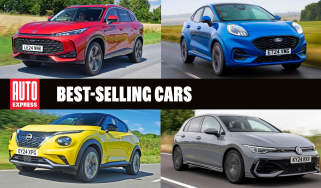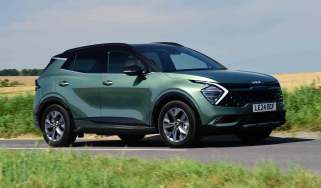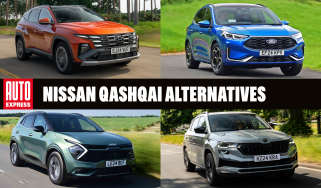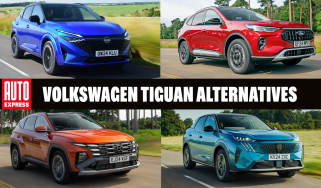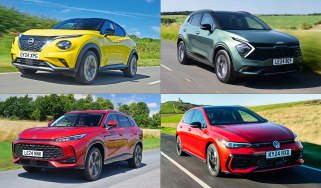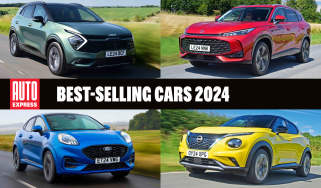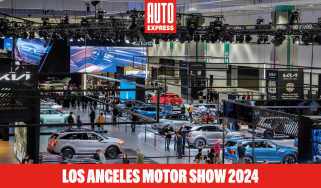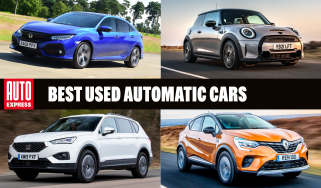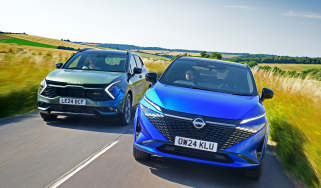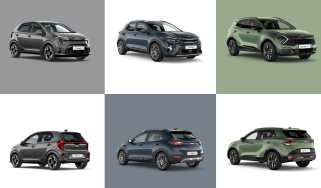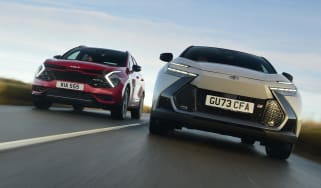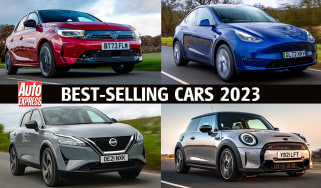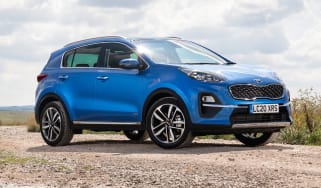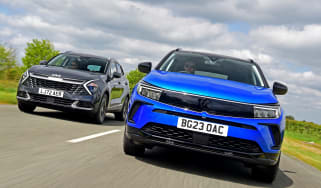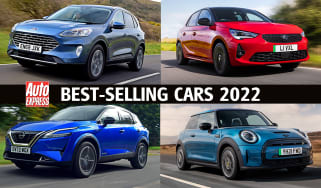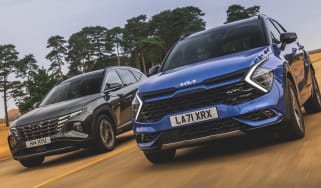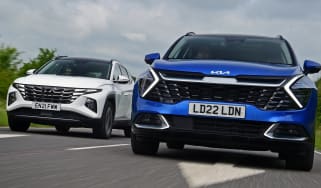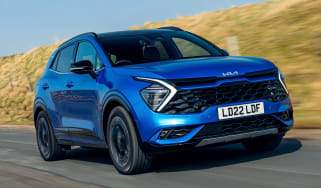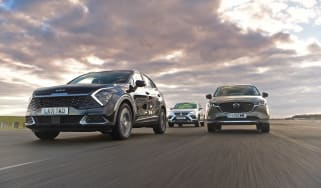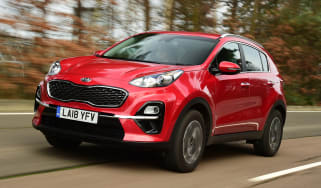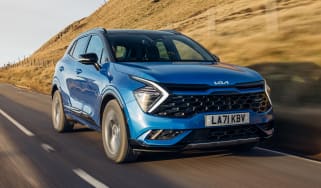Kia Sportage review
Kia isn’t resting on its laurels with its most popular model

Our opinion on the Kia Sportage
Kia can seemingly do no wrong with the Sportage. The model flies out of the showrooms at very nearly the same rate as the Ford Puma, despite that car being both much smaller and costing less to buy. However, when compared with the Sportage’s closest rival, the Nissan Qashqai, it just falls slightly short for overall ability. There’s plenty of boot and passenger space in the Sportage, but in other areas, including the chassis and hybrid powertrain, it can’t quite match the Qashqai. Even so, the Kia’s value for money, generous standard kit, smart interior design and strong performance – plus its seven-year warranty – mean that there is still plenty of appeal to be found.
About the Kia Sportage
Kia has seen room for improvement in the Sportage, because the range gets a new look for 2025, with a face that’s inspired by the likes of its EV9 electric SUV. The brand has introduced a new lighting signature at the front, which makes the car look wider and more imposing, while new wheel designs, measuring between 17 and 19 inches, freshen up the profile.
None of these changes have really altered the fundamentals, however, and that’s a good thing, because the Sportage is a really solid all-rounder that is spacious, well equipped and offers strong value for money. The powertrains aren’t quite up with the very best in the class, but otherwise it’s a great package.
Used - available now

2021 KIA
Sportage
50,839 milesAutomaticPetrol1.6L
Cash £14,351
2015 KIA
Sportage
77,181 milesManualDiesel1.7L
Cash £5,595
2015 KIA
Sportage
78,890 milesAutomaticDiesel2.0L
Cash £7,895
2023 KIA
Sportage
31,062 milesAutomaticPetrol1.6L
Cash £21,977This is the fifth-generation Sportage, and the evolutionary look sums up how the Sportage has changed over the years. There’s just the one five-door, five-seat compact SUV body, while power comes from 1.6-litre turbo petrol mild-hybrid or full-hybrid powertrains. You can get a six-speed manual at the entry point to the petrol line-up, but all other cars feature automatic gearboxes, while front-wheel drive is standard on all models bar the top-spec GT-Line S, which can be had with four-wheel drive.
Kia Sportage prices and latest deals
How much does the Kia Sportage cost? Well, official ‘on the road’ prices range from £30,195 to £45,775 but you can currently save an average of £4,484 through the Auto Express Find A Car service, where prices start at £28,514. You can lease a Kia Sportage from £296 per month or buy a used model at prices starting from £13,800.
Check out our latest new car deals, leasing deals and used car deals for the top offers available now on Auto Express. And don't forget we can help you sell your car, too.
Prices for the Kia Sportage start from around £31,000 for the petrol model in Pure trim, while GT-Line models are £2,500 extra. Adding an automatic gearbox to this model costs £2,500 extra on top of that. At the top of the range, the GT-Line S is around £5,200 extra. If you’re looking at the Sportage Hybrid, prices start at around £34,500 for the Pure model, with the GT-Line and GT-Line S models sitting at the same price difference as the petrol models. Adding four-wheel drive to the GT-Line S adds £1,600 to the list price.
You can make significant savings through our Buy a Car service though, where a new Kia Sportage can be yours for under £25,000.
Performance & driving experience
Pros |
|
Cons |
|
The Sportage has never been about class-leading dynamics, but that’s not a dealbreaker in this segment. What it can offer is a solid all-round mix of secure handling and reasonable overall comfort.
| Model | Power | 0-62mph | Top speed |
| Kia Sportage 1.6 T-GDi | 147bhp | 9.7 seconds | 121mph |
| Kia Sportage 1.6 T-GDi Hybrid auto | 235bhp | 7.9 seconds | 121mph |
| Kia Sportage 1.6 T-GDi Hybrid auto AWD | 235bhp | 8.1 seconds | 121mph |
Performance, 0-60mph acceleration and top speed
Kia offers a choice of electrified powertrains; mild-hybrids sit at the bottom and full hybrids are positioned above them, with plug-in hybrids due to join the range at a later date. All versions use a 1.6-litre turbocharged four-cylinder petrol engine. The entry-level mild-hybrid car produces 147bhp and is paired with either a six-speed manual gearbox or a seven-speed dual-clutch auto.
Despite the slight electrical assistance, the petrol engine needs to be worked hard, and accelerating causes it to emit a gruff, almost diesel-like tone. Overtaking can be quite a steady and noisy process, with a second or two’s delay before the car starts to steadily gain speed, despite a significant increase in engine volume.
Hybrid versions still make a gruff noise, but the electric motor is fairly strong, so that unpleasantness doesn’t crop up so often. In total, there’s 235bhp and 265Nm of torque on offer, so it feels really quite lively for this class.
The generous oomph from the electric motor is immediately obvious because the Sportage hybrid feels more enthusiastic when setting off. The engine chimes in less often around town, too, boosting refinement and reducing fuel consumption. Compared with the class-leading Nissan and Toyota hybrids, there are a few too many jolts in the Korean machine’s powertrain – most notably when shifting gear (even in EV mode) and when the engine switches on and off.
Town driving, visibility and parking
The Kia’s suspension doesn’t quite feel like it offers the same level of sophistication as rivals such as the Nissan Qashqai. While the overall response is quite soft, there’s a level of fidget that makes it through to the cabin, which means that it’s a little less settled at low speeds and across harsher bumps than some alternatives.
Country road driving and handling
While there’s a little more fidget around town than in a Nissan Qashqai, that soft set-up means that it doesn’t really translate into a more agile response through corners, and over larger bumps the body can take a little longer to regain its composure.
When turning into a corner, the initial response is more languid than in a Nissan Qashqai, a Volkswagen Tiguan or a Vauxhall Grandland, and the steering, although naturally weighted, doesn’t feel as precise as the Nissan’s.
Motorway driving and long-distance comfort
At higher speeds, the Kia’s ride settles down, and it proves to be a relaxing, comfortable companion. Stability isn’t quite at the Tiguan’s unflappable levels, but it all feels solid and reassuring.
Kia’s latest hybrid powertrain comes with adjustable regenerative braking, and the paddles behind the wheel allow the driver to adjust the strength of its response on the fly. We really like this level of flexibility, making the car very easy to control on inclines and when slowing down generally. In its weakest setting, the Kia in effect coasts without motor regen; the strongest two of the four deceleration modes engage the brake lights when you lift off the accelerator. Level one regen feels closest to a standard petrol car’s engine braking. - Alex Ingram, chief reviewer
MPG & running costs
Pros |
|
Cons |
|
The Kia’s powertrain line-up isn’t the most efficient in the class, with full-hybrid rivals such as the Qashqai and Honda ZR-V having superior fuel economy. During our test, which took place in temperatures of around 15 degrees Celsius, we averaged a shade under 44mpg on a wide mix of roads in the Sportage. Given the performance on offer, we still consider that a reasonable return.
| Model | MPG | CO2 | Insurance group |
| Kia Sportage 1.6 T-GDi | 39.8mpg | 162g/km | 19 |
| Kia Sportage 1.6 T-GDi Hybrid auto | 50.4mpg | 126g/km | 23 |
| Kia Sportage 1.6 T-GDi Hybrid auto AWD | 44.1mpg | 145g/km | 26 |
Insurance groups
The mild-hybrid manual Sportage starts at group 19 insurance in both Pure and GT Line trims, while the automatic version sits in group 20 for the GT Line, and 22 for the GT Line S. Full-hybrid models with front-wheel drive range from group 23 to 25 according to trim level, while the range-topping all-wheel-drive hybrid is in group 26.
That means that the base models are, based on those groups, more expensive to insure than entry-level Qashqais, but the top-spec hybrids should be cheaper than their equivalents in Nissan’s line-up.
Tax
If you’re a private buyer, the GT-Line hybrid is the Sportage model we’d go for – not least because of the Vehicle Excise Duty (VED) saving relative to the GT-Line S range-topper. The S costs more than £40,000, so is subject to the ‘luxury car’ tax levy, currently taking the total annual cost from £195 to £620 from years two to six. Given that the GT Line version sits well below the £40,000 mark, it avoids that road tax premium, saving buyers £2,125 over five years.
Depreciation
The Sportage is pretty much inseparably tied with its closest rival, the Qashqai, for depreciation. Depending on the powertrain and trim level, the Kia holds onto between 47 and 49 per cent of its original asking price after three years or 36,000 miles.
Those figures do put the Sportage’s residual values behind both the Tiguan and the Kia’s competitor from sister brand Hyundai, the Tucson, though.
To get an accurate valuation of a specific model, check out our free car valuation tool...
Interior, design & technology
Pros |
|
Cons |
|
The Sportage’s cabin is smart and functional, if not quite a class leader in terms of ergonomics or the quality of its materials.
Interior and dashboard design
For 2025, Kia has smartened up the Sportage’s interior. Taking inspiration from rangemates such as the EV6, the air vents have been consolidated into a single, slim span that runs across the width of the dash, below which sits a dual-function panel; the mix of physical dials and touch-sensitive buttons can be used to adjust either the infotainment or climate functions, depending on its mode. It’s quite easy to use, but we’d like it more if the way to change between those functions was a larger, physical button.
There’s a new steering wheel design – the gently squared-off shape is nice to hold, and features a large driving mode switch beneath the left spoke – while the switches on the centre console are neater than before, too.
Materials and build quality
It’s hard to complain about the actual fit of the Sportage’s interior panels, but compared with rivals such as the Tiguan and Peugeot 3008, there are a few too many hard and scratchy plastics close to areas and buttons that most commonly get touched. The door trim is one example.
Infotainment, sat-nav and stereo
As we’ve come to expect from Kia, standard tech is far from measly – even on the entry-level models in the range. For 2025, that base trim has been renamed Pure, but it still gets wireless Apple CarPlay and Android Auto, plus front and rear parking sensors and a reversing camera all fitted as standard equipment.
The GT-Line S trim adds a 12.3-inch digital driver’s display, while other models get a large LED-style readout for the road and engine speeds either side of 4.2-inch digital screen.
The infotainment set-up itself has been an area where Kia has earned praise in the past, but its systems are starting to fall behind the class best. The graphics are merely okay rather than outstanding, but the main criticism falls on some of the sub-menus, which can feel rather convoluted to use.
While disabling a speed-limit warning system is a matter of two button presses in a Qashqai or Renault Austral, here the process involves scrolling through the digital driver’s display in order to open up a sub-menu on the main touchscreen, then you need to dive into another sub-menu to adjust the warning tech from there – and another if you feel the need to adjust the settings of the lane-keep assist, too. It’s possible to bypass the speed-limit deactivation process by giving the mute button on the steering wheel a long press, though.
Kia isn’t a manufacturer that goes in for optional extras very much, and that’s reflected in the Sportage’s trim line-up. If you want more kit, then you’ll need to step up the range from the base Pure model to the GT-Line and GT-Line S variants. The latter is a big step up in cost, but adds plenty of extra tech, including adaptive LED headlights, a panoramic sunroof, ventilated front seats and heated rear seats, a powered tailgate, a Harman Kardon sound system, a head-up driver’s display, blind-spot detection and much more. - Alex Ingram, chief reviewer
Boot space & practicality
Pros |
|
Cons |
|
There’s an impressive amount of space available for both passengers and their luggage, making the Sportage one of the most practical cars in its class.
Dimensions and size
The Sportage has external dimensions that are similar to its rivals, but the packaging on board helps to create more space when compared with its closest opponents.
Dimensions comparison | |||
| Model | Kia Sportage | Nissan Qashqai | Volkswagen Tiguan |
| Length | 4,540mm | 4,425mm | 4,539mm |
| Width | 1,865mm | 1,835mm | 1,842mm |
| Height | 1,645mm | 1,625mm | 1,658mm |
| Wheelbase | 2,680mm | 2,665mm | 2,677mm |
| Boot space | 587 litres | 479 litres | 652 litres |
Seats & passenger space
The Kia offers plenty of room up front, as you’d expect from a family SUV, and fans of a high-set driving position will appreciate it, because it feels like you sit much higher than in the almost car-like Nissan Qashqai.
Anyone in the back will appreciate that there’s enough space for three adult passengers. Against the tape measure, the Kia is a very close match for the Tiguan (marginally beating it in some areas and narrowly falling behind in others), while it offers more space than the Qashqai, Mazda CX-5 and SEAT Ateca, among others.
We like that the Sportage’s rear seats can be reclined by pulling a lever, and all versions get a fold-down centre armrest with cup-holders. These features increase comfort levels for those in the back during a long journey.
Two Isofix child seat mounting points are provided on the outer rear seats. The central seatbelt in the back is a complicated arrangement that comes from the roof, which not only requires you to ensure you’re using the correct seatbelt buckles, but also impacts the driver’s rear visibility, and some might find that the belt rubs their neck on long trips.
Boot space
The full-hybrid versions of the Sportage lose a barely noticeable four litres of boot capacity compared with the petrol mild-hybrid alternatives, but the 587 litres on offer is still very generous. The load lip is among the lowest in the class, which makes it easier to lift heavier items on board than in much of the competition. Drop each section of the 40:20:40-split rear seats, and you can cram up to 1,776 litres worth of kit into it.
Towing
Towing weights for the Sportage are reasonable, with the petrol model offering a maximum capacity of 1,650kg, while the Hybrid is slightly behind, at 1,510kg. However, the VW Tiguan is a better performer overall, plus it has the option of diesel power for even stronger pulling power.
One word of caution I have is that the top-of-the-range GT-Line S comes with a panoramic sliding glass sunroof, and that has an impact on headroom for those in the rear. If you happen to travel with taller teens or adults in the back, it’s best you avoid this version and go for our preferred GT-Line trim instead. - Max Adams, online reviews editor
Reliability & safety
Pros |
|
Cons |
|
Kia has previously ranked highly in our customer satisfaction surveys, but for the last couple of years, it has found itself hovering around the lower half of the manufacturer rankings. In 2025, the 18th-place finish out of 31 puts it ahead of rivals such as Hyundai, Ford, Seat and Volkswagen, but behind Vauxhall, Peugeot, Renault and Nissan.
Long warranties are a Kia trademark, and the Sportage has the brand’s seven-year, 100,000-mile warranty. But the single year of breakdown cover is less than with some rivals.
As with many rivals, Kia offers buyers the option of purchasing a service plan up front, delivering scheduled maintenance that’s protected from the potential of inflation in the future. Kia’s plan is currently cheaper than the equivalent package for the Nissan Qashqai.
| Euro NCAP safety ratings | |
| Euro NCAP safety rating | Five stars (2022) |
| Adult occupant protection | 87 per cent |
| Child occupant protection | 86 per cent |
| Vulnerable road user protection | 66 per cent |
| Safety assist | 72 per cent |
Buying and owning
- Best buy: Kia Sportage 1.6 Hybrid GT-Line
No version of the Kia Sportage is poorly equipped. Even the base model features a 12.3-inch central touchscreen, Kia’s very latest infotainment system, wireless Apple CarPlay and Android Auto, sat-nav, a reversing camera, parking sensors all-round and multiple driver-assistance features.
But for an extra £2,500, GT-Line trim provides some welcome extra features, including heated front seats, a heated steering wheel, leather and suede seat upholstery, plus sportier styling and larger rims. Regarding powertrains, we would go for the hybrid version over the cheaper pure-petrol model, due to its superior refinement, fuel economy and performance.
Kia Sportage alternatives
With many capable rivals in the mid-size SUV market, the Kia Sportage has its work cut out. We tested the facelifted Sportage against the Nissan Qashqai, and in our opinion the Nissan has gained an advantage courtesy of its newer, more efficient and responsive powertrain. It’s not as spacious as the Sportage inside, but passengers won’t complain about a lack of space in comparison.
Another close competitor to the Sportage is the Hyundai Tucson, which is based on the same platform as the Sportage but has won our Mid-size SUV of the Year award four times on the trot from 2021 to 2024. Meanwhile, the Kia has only ever been highly commended.
The Volkswagen Group also offers excellent competition in the form of the Skoda Karoq, Cupra Terramar, and Volkswagen Tiguan. Or if you want more driving fun, consider the Ford Kuga or Mazda CX-5.
In this competitive class, it would also be hard to recommend the expensive Honda CR-V or the commendable but dull to drive Vauxhall Grandland. Neither is a bad choice; it’s just that other rivals offer a more complete package.
Frequently Asked Questions
It’s a decent all-rounder. We would understand why anybody would pick the Sportage, but we found that the Nissan Qashqai is more efficient, the VW Tiguan is better at towing, while the Hyundai Tucson might be a better pick if you can find a competitive deal.

